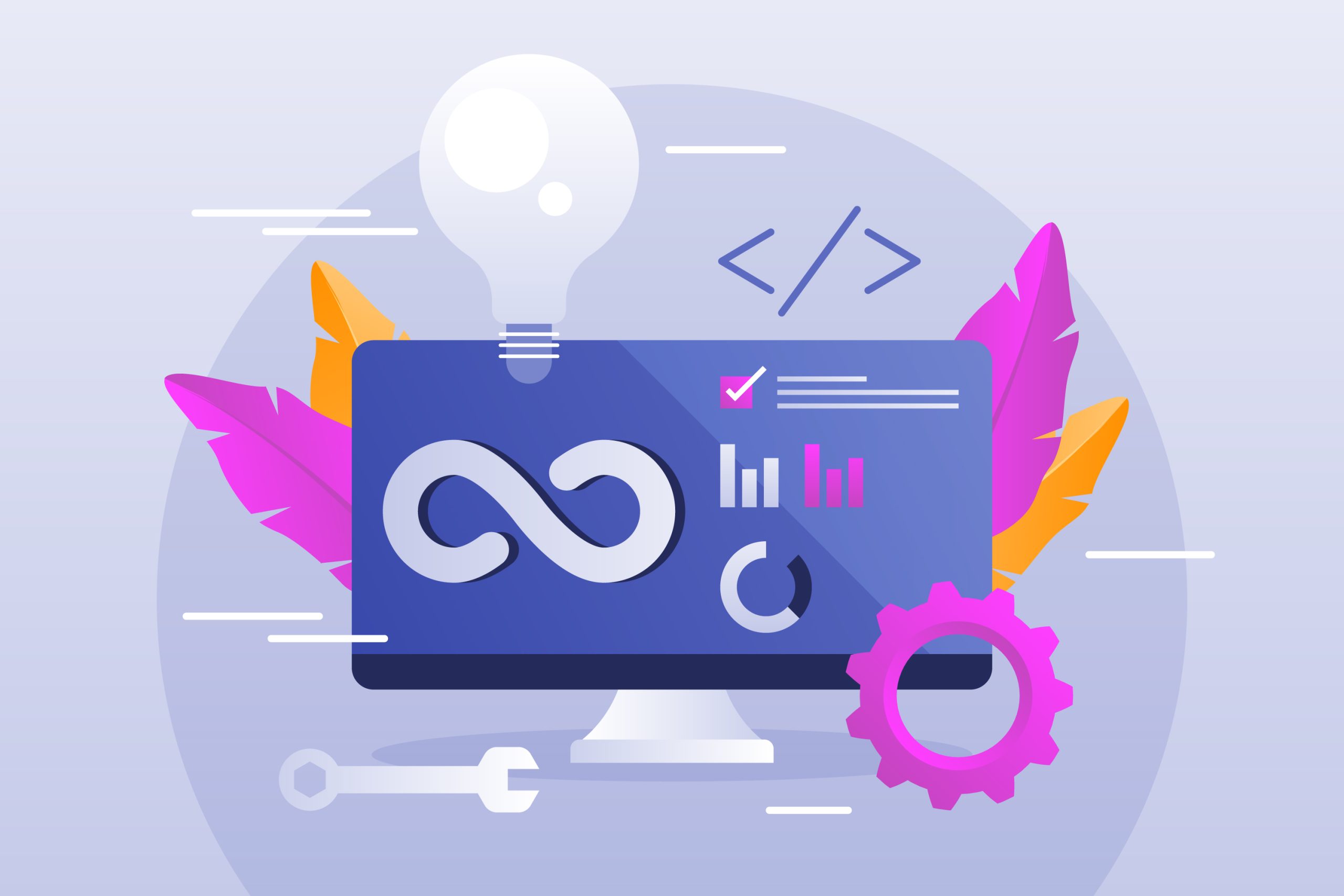DevOps is an approach to software development that enables organizations to better integrate their operations and development teams for joint success. Best DevOps Consulting Services aim to promote collaboration between teams like developers, IT operations staff, analytics, system admins, designers, and any other technical personnel by eliminating barriers and inefficiencies throughout the software delivery process.
By leveraging the power of tools such as Continuous Delivery/Integration (CDI), Infrastructure as-a-Service (IaaS), and Configuration Management (CM) Data Centers, these consulting services create a codified set of responsive processes that permit greater automation to occur. This dramatically accelerates delivery speed while significantly decreasing costs associated with manual configurations — all while facilitating faster development cycles and more streamlined communication.
As such, if you desire top-of-the-line DevOps development services highly capable of maximizing the performance and profitability of your organization’s operations, Best DevOps Consulting Services by Xeven Solutions can help you get there.
What Problems does DevOps Solve?
Best DevOps Consulting Services can help companies of all sizes address the problems that arise from integrating development and operations. DevOps services provide software automation solutions, which help to streamline communication so that the development team and operations team are both on the same page. With improved collaboration, this ensures that changes are made more quickly while maintaining a high standard of quality.
Additionally, DevOps development services create better continuity between teams, resulting in faster release cycles and smaller chances for errors to occur. By using Best DevOps Consulting Services, companies can develop applications faster with fewer defects while benefiting from increased agility and stronger customer satisfaction. DevOps helps organizations build more reliable systems by increasing efficiency and reducing manual errors, as well as shortening the time from idea to launch. Furthermore, DevOps has been proven to help reduce production incidents, and makes it easier for teams to quickly implement security fixes when needed. All in all, with its various advantages for businesses, DevOps improves quality assurance while streamlining IT operations in an organization.
Evolution of DevOps
The IT landscape has seen remarkable changes in the past several years, thanks to the rise of DevOps. Gone are the days of developers working in isolation, and operations teams doing their own thing. These two groups are now working more closely together than ever, leading to far better results all around.
Furthermore, DevOps is much more continuous and iterative than it used to be. Automation is being used far more extensively as well, helping both teams become more efficient than ever before. In summary, DevOps has come a long way from where it was even just a few years ago, and it shows no signs of slowing down anytime soon.
DevOps has seen a massive evolution in the past few years and will be good for future of technology. Starting out as a combination of development and operations practices, DevOps has evolved from being a separate entity to something that is now integral in the success of any project. Organizations now recognize the advantages of DevOps in terms of its ability to enable accelerated delivery cycles, increased quality and improved customer satisfaction. Automated tools and processes for continuous integration, deployment and monitoring have enabled teams to scale up operations quickly with minimal resources. Ultimately, this allows them to ensure product integrity and ultimately drive faster innovation cycles without risking stability or performance.

How to be a DevOps Developer?
Being a DevOps developer can be quite rewarding, offering job satisfaction as well as a good salary. It is possible to become a successful DevOps developer with the right foundation and mindset.
Firstly, prospective developers need to have a good understanding of both software development and system operations, involving the process and tools available for those tasks. A strong knowledge of various scripting and programming languages is also required. Secondly, having experience in automation is important for automating tasks to optimize performance in production environments. This includes developing solutions for deploying code and configuring systems more quickly and efficiently.
Finally, it’s necessary to understand container platforms such as Docker in order to build and deploy applications quickly, securely and at scale. While mastering all aspects of DevOps requires dedication and practice, doing so opens up diverse opportunities to create innovative solutions that facilitate collaboration between departments while helping companies improve their toolchains.
Overview of the Modern DevOps Workflow
A. Planning and Prioritization
With the emergence of DevOps, planning and prioritization are two vitally important processes for any efficient workflow. It is no longer possible to work on a development project without considering how tasks can be broken down into achievable goals with timeframes.
Additionally, objectives must be properly weighed against each other to determine which should have the highest priorities. To this end, successful DevOps teams rely on data-driven decision-making and collaboration to maintain clear lines of communication and maximize efficiency. For projects that require flexibility, iterative approaches like Agile can be hugely beneficial as they allow frequent check-ins, feedback adjustments, and rapid responses to changing market conditions.
At the same time, it’s important not to underestimate the importance of thoughtful planning in order to ensure that essential elements such as code quality are not compromised. Planning and prioritization ultimately serve as the foundation upon which a successful DevOps strategy is built.
B. Continuous Integration and Delivery Pipelines
The modern DevOps workflow is primarily focused on a Continuous Integration and Delivery (CI/CD) pipeline. With such a setup, automated processes are used to release any changes made to an application as quickly and frequently as possible – this helps to ensure applications remain up-to-date with the latest features and bug fixes. The CI/CD workflow starts when code is committed to a version control system, like GitHub.
From there, automated builds are created that can be tested before being deployed in an environment like production. The deployment team will use tools like Terraform and Docker containers to manage the environments so they stay consistent regardless of which environment they’re deploying into. All of this helps to achieve agile software delivery that workflows allow companies to quickly deploy new services and features.
C. Automated Deployment Processes
The modern DevOps workflow uses automation to ensure consistent and reliable deployments for both software and infrastructure. Deployment pipelines provide a reliable process to track changes, test them in different environments, and enable automation as much as possible. This ensures that all changes made are safely deployed, with little manual intervention required.
Automated deployment processes help decrease errors by reducing manual effort and ensure your products stay up to date with system updates. By embracing automated deployment processes, organizations can be better prepared for any unexpected issues that may arise during the deployment process.
Xeven Solutions is the go-to company for best DevOps consulting services. They provide tailored and reliable cloud solutions, automation systems and software developments to suit all businesses – big or small. Their team of experienced professionals has the expertise to help you get the most out of your DevOps development services. Whether you need to scale up your app or reduce cost on shared hosting, Xeven Solutions can make this process easier. Not only do they assist with improving performance and productivity, but they also stay flexible in guiding users’ needs to ensure a successful partnership together. From building custom solutions to launching a product on the market, Xeven Solutions is ready to take up any challenge thanks to their years of experience in managing DevOps development services.




